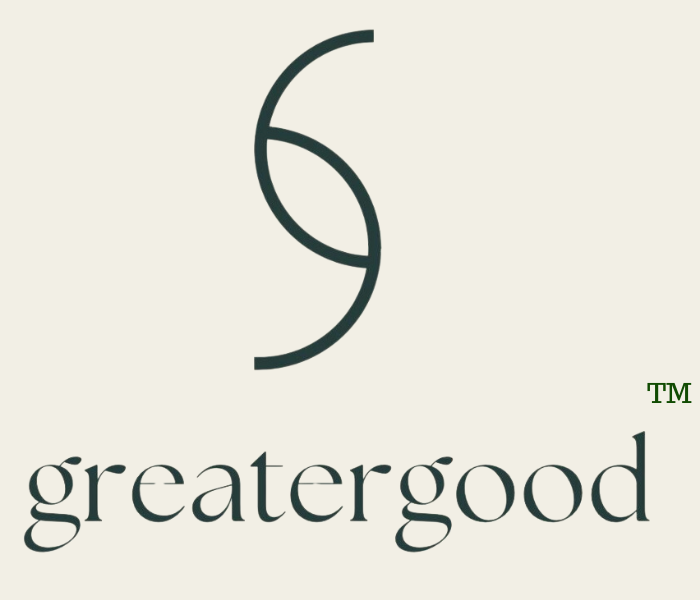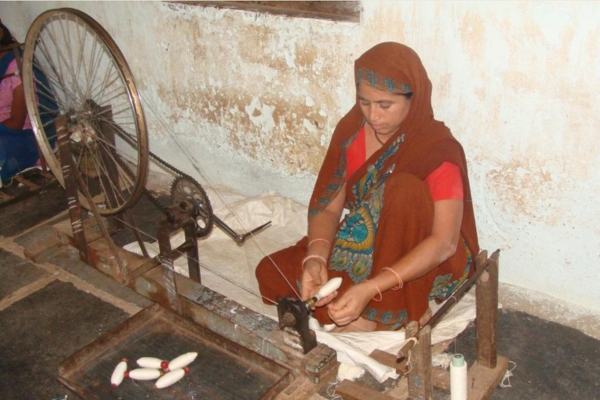As the world increasingly embraces sustainable fashion, Khadi has emerged as a symbol of eco-friendliness and conscious living. At Greatergood , we are committed to promoting this remarkable fabric and supporting the Khadi industry in India. In this blog, we’ll explore what Khadi is, how it’s made, and why it’s one of the most sustainable fabrics available today.
What is Khadi?
Khadi is a traditional Indian fabric that holds a unique place in the world of sustainable fashion. Originating from the rural regions of India, Khadi is handspun, handwoven, and crafted with a deep sense of cultural heritage. This fabric is more than just a material; it’s a symbol of artisanal craftsmanship and eco-friendly practices. Today, it stands as a testament to eco-friendly practices, making it an excellent choice for those who are environmentally conscious.
Process of Making Khadi Fabric
The production of Khadi involves a meticulous and artisanal process:
- Spinning: Cotton fibers are hand-spun into yarn using a traditional spinning wheel called a charkha. This process requires skill and patience, ensuring that each thread has a unique texture and strength.
- Weaving: The spun yarn is then woven into fabric on handlooms. This process is labor-intensive but creates a fabric that is rich in texture and has a distinct, artisanal quality.
- Dyeing: Khadi can be dyed using natural or chemical dyes. Natural dyes, derived from plants and minerals, enhance the fabric’s eco-friendliness.
What Makes Khadi Eco-Friendly?
Khadi’s eco-friendliness stems from its natural production process:
- Minimal Use of Chemicals: The production of Khadi typically involves minimal use of synthetic chemicals, especially when natural dyes are used.
- Energy Efficiency: The hand-spinning and weaving processes require less energy compared to industrial fabric production methods.
-
- Natural Fibers: Khadi uses natural fibers like cotton, silk, or wool, which are biodegradable.
- Biodegradability: Khadi is made from natural fibers, making it completely biodegradable. This means that at the end of its life cycle, khadi leaves no lasting environmental impact.
- Handmade Process: Khadi is entirely handmade, which means it consumes far less energy compared to machine-made fabrics. The absence of industrial processes reduces its carbon footprint significantly.
- Water Conservation: Khadi production uses significantly less water compared to conventional fabrics, as it is handwoven and does not involve water-intensive processes.
The Sustainability of Khadi
Khadi’s sustainability is evident in several aspects:
- Support for Local Economies: By purchasing Khadi, you support local artisans and their communities, promoting fair trade and sustainable livelihoods.
- Biodegradable: Khadi fabrics are made from natural fibers, which are biodegradable and less polluting.
- Long-Lasting: Khadi is a durable fabric that can last for years, reducing the need for frequent replacements.
- Ethical Production: Khadi is produced in a fair-trade environment, ensuring that artisans are paid fairly for their work, contributing to social sustainability.
- Durability: Khadi fabric is known for its strength and longevity, reducing the need for frequent replacements.
- Energy Efficiency: The manual processes involved in Khadi production require minimal energy, further enhancing its sustainability.
How to Care for Khadi
Taking care of Khadi is simple and ensures the longevity of the fabric:
- Gentle Wash: Hand wash or machine wash on a gentle cycle with mild detergent.
- Avoid Harsh Chemicals: Do not use bleach or strong detergents that may damage the fabric.
- Dry in Shade: Avoid direct sunlight when drying to prevent fading.
- Iron on Low Heat: If needed, iron Khadi on low heat to maintain its texture and appearance.
Why You Should Choose Khadi
Choosing khadi is not just a fashion statement; it’s a step towards a sustainable future:
- Support Ethical Fashion: By choosing khadi, you are supporting ethical fashion practices and contributing to the well-being of artisans.
- Reduce Environmental Impact: Khadi’s production process has a minimal environmental impact, making it a responsible choice for the eco-conscious consumer.
- Champion Local Businesses: Opting for khadi means supporting local khadi clothes manufacturers in India, helping them thrive in a competitive market.
Khadi: The Fabric of Sustainability, Heritage, and Ethical Fashion
Khadi is more than just a fabric; it is a symbol of sustainable living and ethical fashion. As you explore options for eco-friendly clothing, consider khadi for its rich heritage, unique qualities, and minimal environmental impact. At Greatergood , we are committed to promoting sustainable fabrics like khadi, working closely with khadi fabric manufacturers in India and khadi clothing suppliers in India to bring you garments that are kind to the earth and supportive of traditional artisans.

